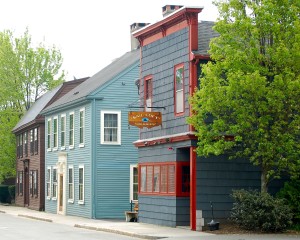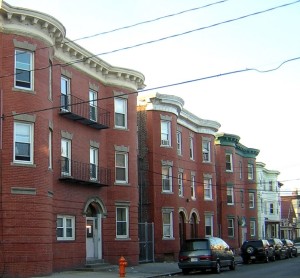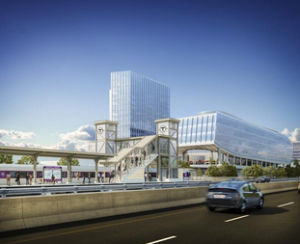As New York City Land Use Attorneys Getting Busier, Possible Boom Lies Ahead
In a city where real estate commands a price higher than nearly anywhere else in the world, nothing is easy. This applies to middle and working class residents coping with the high cost of living, as well as to real estate investors and developers to whom New York City government can seem like a maze of approvals and strict standards, comprised of countless committees and interests, all of whom have their own priorities and powers to exercise.
NYC’s Real Estate Market
Increased real estate development activity is affecting New Yorkers who aren’t even involved in the real estate business. The so-called “pencil towers” going up around 57th Street near Central Park are redefining the city’s skyline and breaking records for both heights of residential buildings and sale prices of residential units. Ordinary Manhattan apartments are selling for substantially higher prices as well. According to the Wall Street Journal’s analysis of New York City Department of Finance data, the average sale price for a Manhattan co-op or condo in 2014 topped $1.68 million, which is more than 16% higher than 2013, and 10% above the peak prices in pre-recession 2008.
Mayor de Blasio’s Affordable Housing Agenda
Following the stabilization of the economy at large and the resulting increase in New York real estate development there was a mayoral changing of the guards. Since taking the reigns as Mayor on January 1st, 2014, Bill de Blasio has sought to establish contrast with his predecessor, the billionaire Wall Street magnate, Michael Bloomberg. A prime example of this contrast is placing a dramatic increase in affordable housing in the city as one of his top agenda items. His administration seeks to “to build and preserve 200,000 affordable units over the coming decade.” Achieving such an increase will require changes to infrastructure, building skyward, and new regulations.
Land Use Attorneys
New York City developers rely on land use attorneys to obtain required permits, ensure compliance with zoning laws, and to obtain approval from the city for their projects. There are two categories of development with regard to obtaining approval from the city: as-of-right developments and developments with discretionary approval processes.
The New York City Department of City Planning web site states that “An as-of-right development complies with all applicable zoning regulations and does not require any discretionary action by the City Planning Commission or Board of Standards and Appeals.” According to Frank Chaney, who is a land use attorney with Rosenberg & Estis, P.C. and a former Deputy Director of the Department of City Planning, “If there is any way shape or form by which developers can get approvals and permits without discretionary review, they’ll do it. The discretionary approval process can run from one and a half to two years on complicated projects.” As-of-right developments require limited assistance from attorneys, whereas applications with discretionary approvals are the bread of butter of land use legal practices. “Except for the usual due diligence done for all developments, people only need land use attorneys if there is some kind of discretionary approval involved.”
In New York, the recession which began in 2008 resulted in both reduced as-of-right development projects and projects with discretionary approvals. The onset of the recession didn’t immediately affect land use attorneys however, because the pre-recession pipeline of applications with discretionary approvals kept land use attorneys busy well into the first two years of the recession. Per Chaney, “once they [real estate investors and developers] were into the project, most applicants proceeded through the start of the recession into 2009, but the flow of new applications into the pipeline dried up.”
Chaney believes, however, that the demand for land use attorneys has increased since the recession-induced slump. “From 2010 until 2012 or perhaps early 2013, it was pretty slow. I’m not sure we’re back at same level of activity we had prior to the recession but the gradual recovery has led to more and more activity.”
According to Ross Weil, of the New York City legal placement firm Walker Associates, land use and zoning attorneys have become hot prospects in the current job market. “When real estate is booming, land use work is booming. The current redevelopment efforts in the city mean a boom not just for residential property but commercial too. You can’t build a hotel without this kind of work.”
Uncertain Implementation of Affordable Housing Agenda
During his campaign for Mayor, de Blasio spoke often of increasing affordable housing in the city, and he hasn’t backpedalled since his inauguration. In fact, he’s doubled down, appointing Carl Weisbrod to chair the City Planning Commission and to serve as Director of City Planning, who has echoed the Mayor’s claims that the affordable housing agenda is a top priority.
Thus far, the most significant change in policy the administration has made in the name of increasing affordable housing in the city has been to convert the once voluntary, incentive-based Inclusionary Housing Program into a mandatory participation program. New York City’s Inclusionary Housing Program was originally established in 1987 for the purpose of incentivizing developers to include more affordable housing units in their projects via a zoning exemption allowing developers to build larger structures than they otherwise could obtain approval for, provided their project included a certain amount of affordable housing. In 2005, the Bloomberg administration substantially expanded the incentive-eligible areas in the city. Bloomberg’s major changes to the program seem minor in comparison to de Blasio’s.
In September, Weisbrod announced that affordable housing units will be required for any development projects requiring city planner approval. He spoke in unequivocal terms, saying “You can’t build one unit unless you build your share of affordable housing. You can’t build just market-rate housing, period.”
Alma Realty was among the first developers to opt in to the “mandatory” program with a 1,700 unit project on the East River in Queens, only to be met by resistance at the city council level, where leaders claimed that the 20% of units set aside for affordability wasn’t enough. After a compromise that included a raise to 27%, that project was approved, but the future is clear: achieving the mayor’s affordable housing goals isn’t going to be easy for the administration, or for developers.
Attorney Frank Chaney says he has received numerous calls and inquiries during the first year of the de Blasio administration from concerned people asking him about possible new affordable housing mandates. “What would be the criteria for them? On what basis would they determine compliance with mandates? Some of these questions have been answered to a certain extent, but there are still a lot of unknowns.”
When asked how he thinks de Blasio’s affordable housing agenda will impact land use attorneys in New York, Chaney answered “If they structure the affordable housing program such that it is as-of-right, not discretionary, then there might not be much of an uptick in work for land use attorneys. If it is subject to review and approval, there will be more work for people like me.”
In response to the same question, Ross Weil of Walker Associates said “The increase in development in the city which started in the late Bloomberg years as the economy improved has already led to a major increase in demand for land use attorneys. But if de Blasio’s affordable housing regulations make getting development projects approved more complicated, I’d say land use in the city would be an absolutely booming practice area.”
We’re in the early stages of what Mayor de Blasio called “the largest, fastest affordable housing plan ever attempted at a local level,” that he said would “change the face of this city forever.” If the implementation of his affordable housing agenda results in additional discretionary approvals for real estate development projects, then Mayor de Blasio could change the face of the land use legal practice area in New York City forever, as well.
 Housing Partnership Directors Testify
Housing Partnership Directors Testify Moderate and Low Income Residences
Moderate and Low Income Residences




 The station is estimated to cost approximately $20 million ($4 – $6 million more than the original projected cost) and is being financed by New Boston Landing LLC, a New Balance development company. It will provide service to employees of the well-known shoe company, and direct access to the company’s
The station is estimated to cost approximately $20 million ($4 – $6 million more than the original projected cost) and is being financed by New Boston Landing LLC, a New Balance development company. It will provide service to employees of the well-known shoe company, and direct access to the company’s  In what could soon become a blueprint for other regions to follow when planning for urban development, the proposed
In what could soon become a blueprint for other regions to follow when planning for urban development, the proposed 
